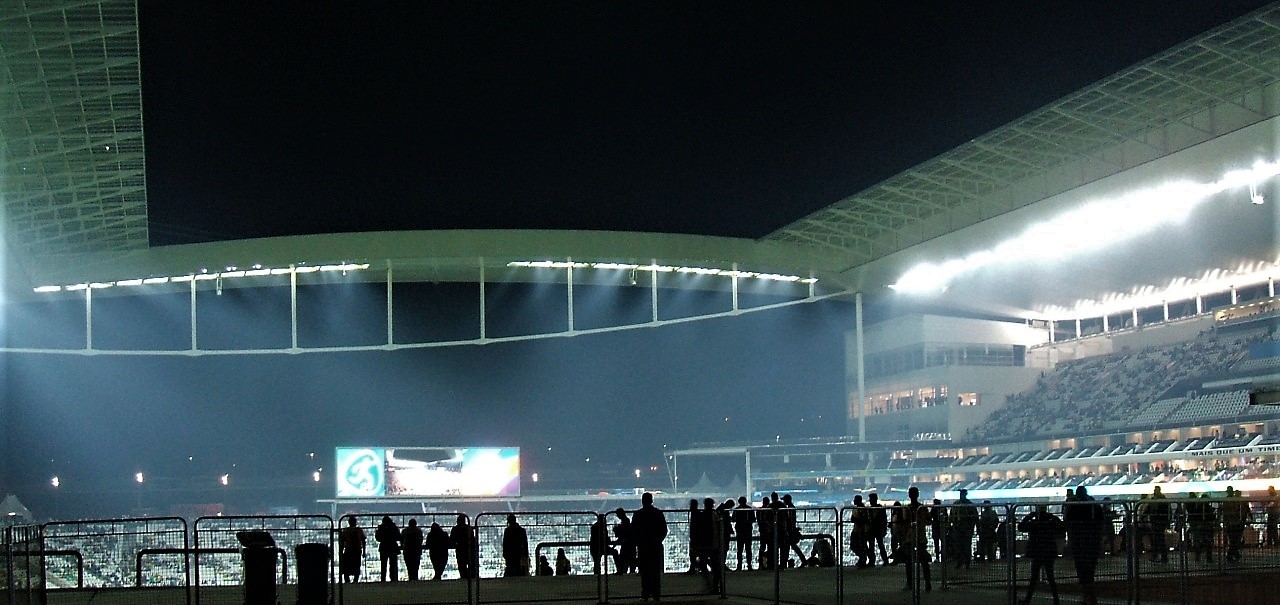Esporte, geopolítica e relações internacionais
Conteúdo do artigo principal
Resumo
O objetivo deste artigo é analisar os possíveis diálogos existentes entre o esporte, a geopolítica e as relações internacionais. Trata-se de um estudo exploratório do tipo qualitativo, combinando as abordagens bibliográficas e documental de diferentes fontes e países de origem. Percebe-se, desde os Jogos Olímpicos Antigos, 776 a. C., uma correlação estreita entre as práticas esportivas e os interesses geopolíticos. Com o passar do tempo, tais aproximações tornaram-se mais indubitáveis, ditando tomadas de decisões dos órgãos responsáveis pelos megaeventos esportivos e fomentando o aparelhamento do esporte pelas Nações através do conceito de soft-power. Embora estejam claro o diálogo e o uso do esporte como ferramenta geopolítica e de relações internacionais, análises contrabalanceadas e dialógicas devem ser realizadas para que certa relativização do fenômeno esportivo seja factível.
Downloads
Detalhes do artigo
Seção

Este trabalho está licenciado sob uma licença Creative Commons Attribution 4.0 International License.
Autores que publicam nesta revista concordam com os seguintes termos:
1. Autores mantém os direitos autorais e concedem à revista o direito de primeira publicação, com o trabalho simultaneamente licenciado sob a Licença Creative Commons Attribution que permite o compartilhamento do trabalho com reconhecimento da autoria e publicação inicial nesta revista.
2. Autores têm autorização para assumir contratos adicionais separadamente, para distribuição não-exclusiva da versão do trabalho publicada nesta revista (ex.: publicar em repositório institucional ou como capítulo de livro), com reconhecimento de autoria e publicação inicial nesta revista.
3. Autores têm permissão e são estimulados a publicar e distribuir seu trabalho online (ex.: em repositórios institucionais ou na sua página pessoal) a qualquer ponto antes ou durante o processo editorial, já que isso pode gerar alterações produtivas, bem como aumentar o impacto e a citação do trabalho publicado (veja O Efeito Acesso Livre).
Como Citar
Referências
ARON, Raymond. Le spectateur engagé: entretiens avec Jean-Louis Missika et Dominique Wolton. Paris: Presse Pocket/Julliard, 1983.
BOLZ, Daphné. Les arènes totalitaires: Hitler, Mussolini et les jeux du stade. Paris: CNRS Éditions, 2008.
BONIFACE, Pascal. JO Politiques: sport et relations internationales. Paris: Eyrolles, 2016.
BOURDIEU, Pierre. A distinção: crítica social do julgamento. 2º Edição. ed. Rio de Janeiro: Editora Zouk, 2006.
BRANNAGAN, Paul Michael; GIULIANOTTI, Richard. Qatar, Global Sport, and the 2022 FIFA World Cup. In: GRIX, Jonathan. Leveraging Legacies from Sports Mega-Events. Basingstoke: Palgrave, 2014.
CAMPBELL, Rook. Staging globalization for national projects: Global sport markets and elite athletic transnational labour in Qatar. International Review for the Sociology of Sport, v. 46, n. 1, p. 45-60, 2010.
CASTILHO, César Teixeira. Politiques Publiques et la Coupe du monde de football 2014 au Brésil: des espoirs aux héritages locaux. Paris, 2016, 556 f. Tese (Doutorado em Sciences du Sport et du Mouvement Humain). Sciences et techniques des activités physiques (STAPS), Université de Paris-Sud (Paris 11).
DANSERO, Egidio; MELA, Alfredo. La territorialisation olympique: le cas des jeux de Turin, 2006. Revue de géographie alpine, v. 95, n. 3, p. 1-15, 2007.
DJAMSHIDI, Antoine. Neymar au PSG: Nasser Al-Khelaïfi promet de "gros changements", Laurent Blanc peut-être menacé. Le Parisien, 03 jun. 2016.
GILLON, Pascal. Une lecture géopolitique du système olympique. Annales de géographie, v. 4, n. 680, p. 425-448, 2011.
GINESTA, Xavier; EUGENIO, Jordi de San. The Use of Football as a Country Branding Strategy: Case Study: Qatar and the Catalan Sports Press. Communication & Sport, v. 2, n. 3, p. 225-241, 2013. Doi.org/10.1177/2167479513486886.
GOLDBAUM, Maxime. La diplomate du ping-pong fait son retour au Qatar. Le Monde Web Site, 2011. Disponivel em: https://bityli.com/sXoVQ. Acesso em: 04 Junho 2019.
GOLDBLATT, David. The Games: a global history of the Olympics. New York and London: Norton, 2016.
GUÉGAN, Jean-Baptiste. Géopolitique du sport: une autre explication du monde. Paris: Breal, 2017.
GYGAX, Jérôme. Diplomatie culturelle et sportive américaine: persuasion et proagande durant la Guerre froide. Relations Internationales, v. 3, n. 123, p. 87-106, 2005.
LACOSTE, Yves. Dictionnaire de Geopolitique. Paris: Flammarion, 1999.
LOBO, Felipe. Da Euro 2020 à F1: Baku, mergulhada em controvérsia, é símbolo do Azerbaijão que se promove para o mundo. Trivela Web Site, 2019. Disponivel em: https://bityli.com/t9Kc4. Acesso em: 04 jun. 2020.
MARCHI JR, Wanderley. O "Esporte em Cena": perspectivas históricas e interpretações conceituais para a construção de um Modelo Analítico. The Journal of the Latinamerican Socio-cultural Studies of Sport, Curitiba, v. 5, n. 1, p. 46-67, 2015.
MCLAREN, Richard. WADA investigation of Sochi allegations. World Anti-Doping Agency. Montreal, p. 144. 2016.
MILZA, Pierre. Sport et relations internationales. Relations Internationales, n. 38, p. 155-174, 1984.
NYE, Joseph. Bound to lead: the changing nature of American Power. New York: Basic Book, 1990.
PÉREZ, Gorka. Por conflito político, Arsenal anuncia que não levará jogador armênio à final da Liga Europa no Azerbaijão. El País Web Site, 2019. Disponivel em: https://bityli.com/u7EFe. Acesso em: 04 jun. 2020.
POUCHARD, Alexandre; BELLANGER, Elisa. Les Jeux olympiques, un budget difficile à maîtriser. Le Monde Web Site, 2017. Disponivel em: https://bityli.com/yODjr. Acesso em: 25 Junho 2020.
REDEKER, Robert. Le Sport contre les peuples. Paris: Berg International, 2002.
RICH, Motoko. The New York Times. Olympics Open With Koreas Marching Together, Offering Hope for Peace, 2018. Disponivel em: https://bityli.com/0zmLp. Acesso em: 24 jun. 2020.
TOUZRI, Michel. Ça coûte combien une Coupe du Monde de football? Paris Sportifs, 2013. Disponivel em: https://bityli.com/SUX3H. Acesso em: 25 jun. 2020.
